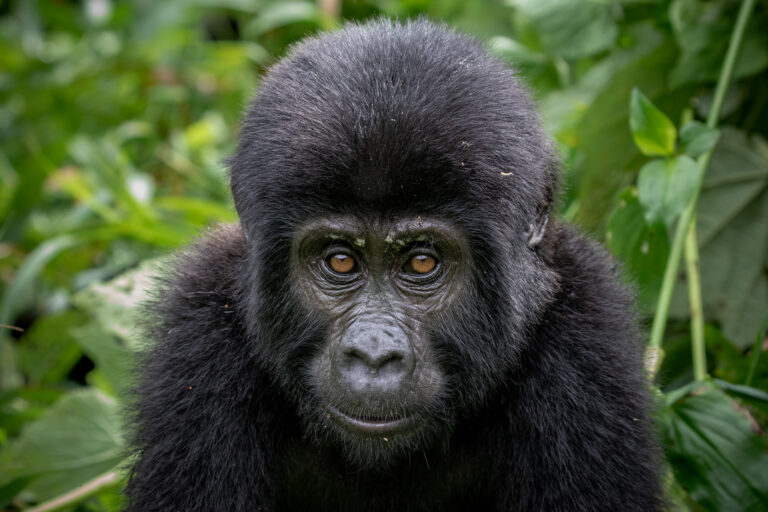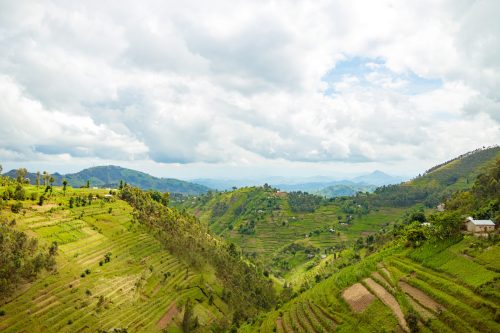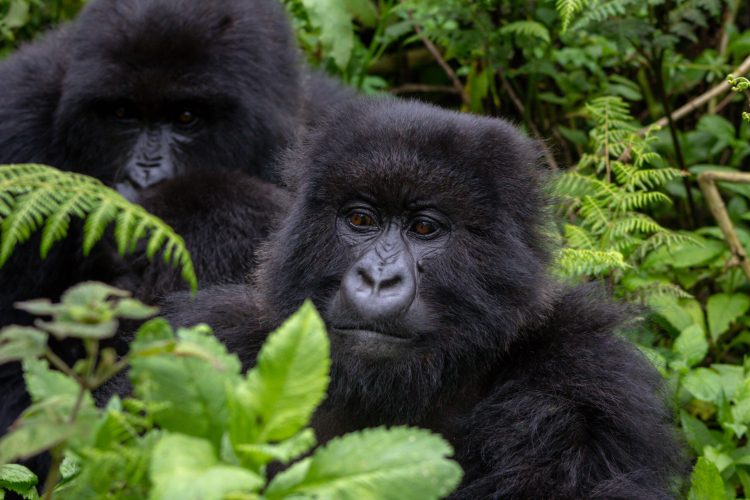Updated:
|
Published:
Rwanda, located in the heart of East Africa, is a small country with a big story. Known for its tragic past, the country has undergone an incredible transformation in the past few decades, emerging as one of the most dynamic and rapidly developing nations on the continent.
Today, Rwanda boasts a wealth of natural beauty, a thriving tourism industry, and a culture that celebrates its unique history and traditions. In this blog post, we’ll take a closer look at this fascinating country and explore some of its most inspiring stories and sights.

Rwanda, often referred to as the “Land of a Thousand Hills,” is a small, landlocked country located in the heart of Africa. The country’s hilly terrain has played a significant role in its history and culture. For many centuries, the hills of Rwanda have been an integral part of the country’s social, economic, and political life. The people of Rwanda have long used the hills to cultivate crops and livestock, and the hills have also served as a natural defence against invaders.
The hills of Rwanda are also significant in the country’s cultural and religious traditions. Rwandans believe that their ancestors reside on the hills, and they often hold important ceremonies on the hillsides. The hills are also home to a variety of flora and fauna, and the local people have developed unique methods for harvesting natural resources while protecting the environment.
The cultural and historical significance of Rwanda’s hills is just one aspect of the country’s rich history and culture. Understanding this aspect of Rwandan culture can provide valuable insights into the country’s past and present, and can help visitors to appreciate the unique beauty and resilience of this vibrant nation.

Rwanda has a rich and complex history that stretches back thousands of years. The earliest known inhabitants of the region were the Twa, a pygmy people who lived in the forests of the Great Lakes region. Later, Bantu-speaking farmers migrated into the area, forming the foundation of modern-day Rwanda’s population.
Around the 15th century, the Kingdom of Rwanda was established by a Tutsi ruler named Kigeli. Over time, the kingdom grew in size and power, and by the 19th century, it had become a centralized monarchy with a sophisticated social structure. The Tutsi, who made up about 15% of the population, were the ruling class, while the Hutu, who made up about 85%, were the working class.
The social structure was not based solely on ethnicity but also on a combination of factors such as wealth, age, and lineage. The Tutsi elite owned the majority of the land, and the Hutu worked as farmers and herders. There was also a third group, the Twa, who were hunters and gatherers and occupied a marginalized position in society.
The Kingdom of Rwanda was known for its military prowess and its impressive cultural achievements, including a rich oral tradition of poetry and storytelling. The kingdom’s decline began in the late 19th century when European colonial powers arrived in the region, seeking to exploit its resources and establish their own political influence.
During the late 19th century, Rwanda came under German colonial rule, which lasted until 1916 when Belgium took control of the territory. During the colonial period, the Belgians instituted policies that exacerbated existing social and economic inequalities, creating ethnic tensions that would later contribute to the 1994 genocide.
After gaining independence in 1962, Rwanda experienced political instability and a series of coups and civil wars, culminating in the 1994 genocide, in which an estimated 800,000 Tutsis and moderate Hutus were killed in a span of 100 days. In the aftermath of the genocide, Rwanda has made significant progress in rebuilding and reconciling its society, establishing a stable government and economy, and becoming a model for post-conflict reconstruction.
“The Rwandan people are not defined by their past, but by their present and their future.”
–President Paul Kagame of Rwanda
Contemporary Rwandan culture is a rich blend of traditional practices and modern influences. Despite the country’s difficult recent history, Rwandans take pride in their heritage and work to preserve their unique cultural traditions. Music and dance are important elements of Rwandan culture, and there are many traditional dances that are still performed at events and festivals. Rwandan cuisine is also a noteworthy aspect of the country’s culture, with dishes such as ugali, grilled meat, and plantains being staples of the national diet. The arts are also a thriving part of Rwandan culture, with many local artists producing traditional crafts such as basketry, pottery, and weaving. Additionally, the country has a growing contemporary art scene, with many young artists exploring modern mediums and techniques to express their unique perspectives.
Rwanda’s tourism industry has been growing steadily over the past decade. The country’s government has invested heavily in promoting the country’s natural beauty, wildlife, and unique cultural heritage, and these efforts have paid off in the form of increased tourism.
Rwanda’s main draw for tourists is the chance to see mountain gorillas in the wild. The country’s Volcanoes National Park is home to over half of the world’s remaining mountain gorilla population, and visitors come from all over the world to see these majestic creatures in their natural habitat. Other popular attractions include Akagera National Park, Nyungwe Forest National Park, and Lake Kivu.
Tourism has had a significant impact on Rwanda’s economy. The industry provides jobs for thousands of people, and the money generated by tourism helps to fund conservation efforts and support local communities. In addition, the influx of foreign visitors has helped to boost the country’s international profile, which has led to increased investment and business opportunities.
Rwanda has plenty of attractions for visitors to explore, from its stunning natural beauty to its rich cultural heritage. Here are a few of the top tourist attractions to check out:
These are just a few of the many attractions that Rwanda has to offer. Whether you’re interested in wildlife, culture, or history, there’s something for everyone in this beautiful and fascinating country. Have a look at Visit Rwanda for more information.
Rwanda is a developing country with a rapidly growing economy. In recent years, the country has experienced an average annual growth rate of around 7%, making it one of the fastest-growing economies in Africa. The government has implemented various policies and initiatives aimed at promoting economic growth and reducing poverty.
The country’s economy is primarily based on agriculture, which accounts for around one-third of the country’s GDP and employs around 80% of the population. Coffee and tea are among the most important cash crops, and Rwanda has been working to increase its production and improve the quality of its coffee beans in recent years. The country also has a growing tourism industry, which has become an increasingly important source of foreign exchange earnings.
In addition, Rwanda has been working to attract foreign investment and diversify its economy. The government has implemented a number of reforms aimed at improving the business climate, and the country has seen an increase in foreign investment in recent years, particularly in the manufacturing and service sectors.
Despite its rapid economic growth, Rwanda still faces a number of challenges, including high levels of poverty and unemployment, as well as a trade deficit. However, the government’s focus on promoting economic development and reducing poverty is expected to continue to drive growth in the country.
Rwanda’s future is shaped by a variety of initiatives and projects, both within the country and in partnership with international organizations. The government’s Vision 2050, launched in 2020, aims to transform Rwanda into a high-income country by 2050. This ambitious plan focuses on three key pillars: social transformation, economic transformation, and environmental transformation.
In terms of economic development, Rwanda has made significant strides in recent years, with a growing private sector and a focus on technology and innovation. One example is the Kigali Innovation City, a technology hub aimed at fostering innovation and entrepreneurship in the country. Other initiatives include the Made in Rwanda campaign, which promotes locally made products, and the development of the Kigali Special Economic Zone, a designated area for foreign investors.
Rwanda’s government is also committed to environmental sustainability, with initiatives aimed at reducing carbon emissions, increasing renewable energy, and promoting conservation. The country is a leader in gorilla conservation, with initiatives aimed at protecting the endangered species and promoting responsible tourism.
Overall, Rwanda’s future looks promising, with a government that is committed to economic growth, social development, and environmental sustainability. As the country continues to develop, there will likely be many more initiatives and projects that shape its future.

The future outlook for Rwanda is promising, with ongoing efforts to develop the economy, improve infrastructure, and boost tourism. The government’s focus on promoting investment in key sectors such as tourism, agriculture, and technology is likely to attract more foreign investment and boost economic growth.
Rwanda’s commitment to sustainable development and environmental protection is also notable, with the country being a leader in Africa in adopting eco-friendly policies and practices. The government’s aim to make Rwanda a carbon-neutral economy by 2050 is a testament to this commitment.
With a young and ambitious population, a vibrant cultural heritage, and a breathtaking natural landscape, Rwanda is poised for a bright future. The country’s progress in recent years has been remarkable, and there is much potential for continued growth and development in the years to come.

Rwanda is a country that has overcome tremendous adversity and is on the path to becoming a thriving nation. With a rich history, vibrant culture, and breathtaking natural scenery, Rwanda has much to offer visitors. The country’s government has implemented several initiatives to build a more sustainable and prosperous future for its people, and its economy is rapidly growing. Rwanda is a place of opportunity, and the world is starting to take notice. It is a destination that should not be overlooked, and one that has a bright future ahead. As the country continues to develop and grow, it is poised to become a shining example of what can be accomplished with hard work, determination, and a commitment to progress.
Tags:
Recruiting experienced and qualified internationals for the London hospitality sector.